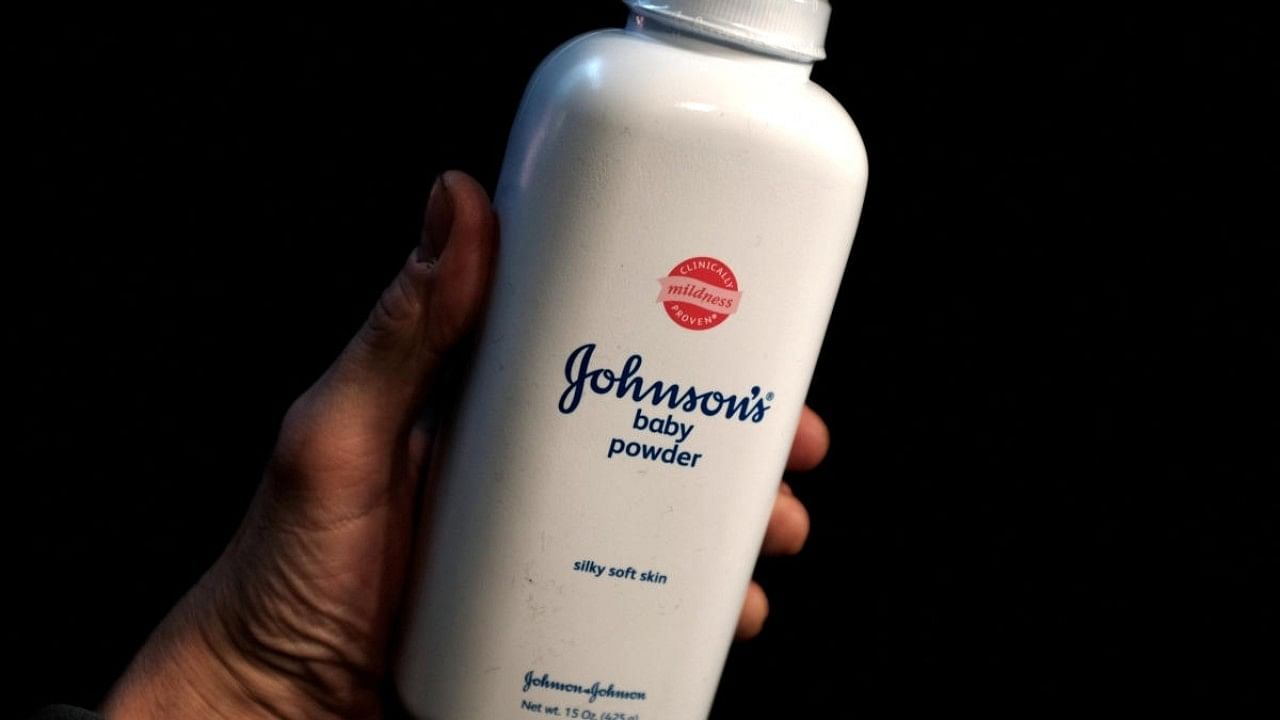
In 2020, J&J announced that it would stop selling its talc Baby Powder in the United States and Canada.
Credit: Reuters File Photo
By Jef Feeley
Johnson & Johnson has tentatively agreed to pay about $700 million to resolve an investigation by more than 40 US states into claims that it wrongfully marketed its talc-based baby powder by not warning about possible health risks, according to people familiar with the deal.
The settlement would avert potential lawsuits alleging that J&J hid any links between the talc in its powder and various cancers, according to the people, who asked not to be named because the pact isn’t yet public. They said J&J and representatives for state attorneys general are still hammering out the specific terms of the accord but have reached an agreement on the approximate total amount.
The settlement is part of J&J’s strategy to corral a growing number of suits accusing it of concealing baby powder’s health risks after two failed attempts to use the bankruptcy courts to impose a settlement on former users. The decade-long litigation, plus the prospect of potential future cancer suits, has limited J&J’s stock price, analysts have said.
Shares of J&J fell slightly as trading began Monday morning in New York, but closed with a 0.25% gain at $161.53. The stock fell 11% last year.
$9 Billion Offer
The New Brunswick, New Jersey-based company had offered to settle all current and future baby powder claims for $9 billion in the bankruptcy filing of one of its units. As part of that offer, it said last year it set aside $400 million to resolve US states’ consumer protection claims. The company agreed to increase the payout after both sides met with a mediator in December, the people said.
J&J spokeswoman Clare Boyle had no immediate comment on the settlement Monday. Kylie Mason, a spokesperson for Florida AG Ashley Moody, said the multi-state investigation is ongoing and “no settlement agreements have been reached.”
Representatives of Texas Attorney General Ken Paxton didn’t respond to a phone call and email seeking comment. Moody and Paxton have been leading the probe and the settlement talks, the people said.
So far, only Mississippi and New Mexico have filed lawsuits against J&J over the marketing. But J&J said in an October securities filing that 42 states and the District of Columbia had launched “a joint investigation into the company’s marketing of its talcum powder products.”
Attorney generals of states from Arizona to North Carolina had issued demands for information from J&J. The pact doesn’t cover the suits by Mississippi and New Mexico, which want to negotiate higher settlements since they have already begun litigating, the people said.
Mississippi, for example, wants J&J punished for selling more than 6 million bottles of baby powder in the state without a cancer warning over almost 50 years starting in 1974, according to court filings. That could result in about $6 billion in damages if a judge hands down a $1,000-per-bottle fine under the state’s law.
Broad Exposure
J&J, the world’s largest maker of health care products, has legal exposure far beyond the states’ claims. It faces more than 50,000 suits alleging that to protect one of its best-known products, it concealed that asbestos in its talc-based powders posed a cancer risk. Most of those claims are over women who got ovarian cancer, but others involved mesothelioma, a cancer tied to asbestos exposure.
J&J maintains that its talc-based products don’t cause cancer and that it has marketed its baby powder appropriately for more than a century. The company has won a number of cases in court and had other suits dismissed before trial.
Former baby powder users contend that J&J executives knew since the early 1970s that the product contained trace amounts of asbestos. Since 2014 at least a dozen juries have awarded a total of more than $6.5 billion in damages to consumers blaming the powders for their cancers, according to data compiled by Bloomberg News. Some of those awards later were reduced or thrown out on appeal.
The company pulled its talc-based powders off the market in the US and Canada in 2020, citing slipping sales. J&J replaced talc with a cornstarch-based version of the product and vowed to remove all its baby powders containing talcum powder worldwide by the end of last year.
The consolidated federal case is In Re Johnson & Johnson Talcum Powder Products Marketing, Sales Practices and Products Liability Litigation, 16-md-2738, US District Court, District of New Jersey (Trenton).